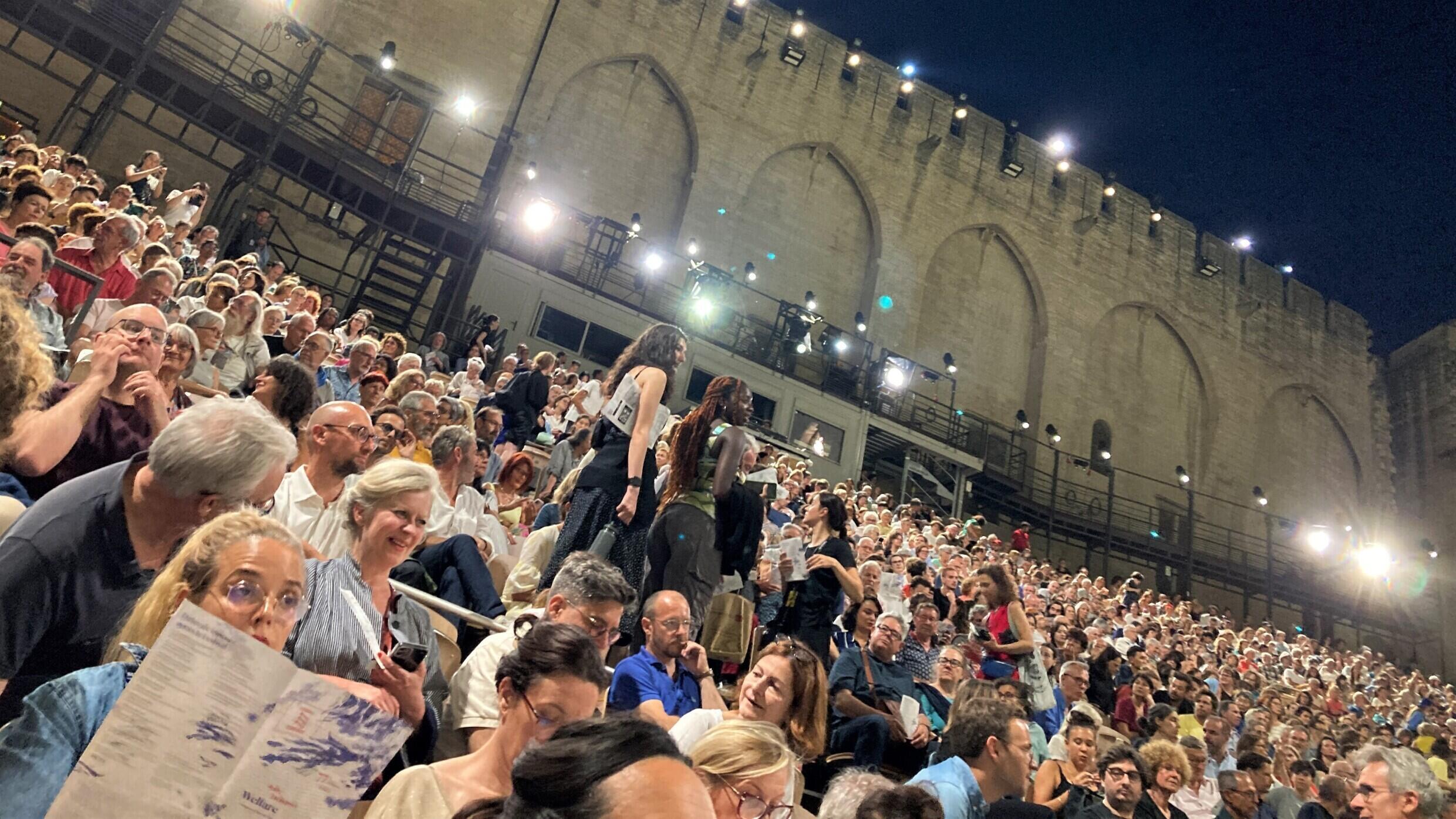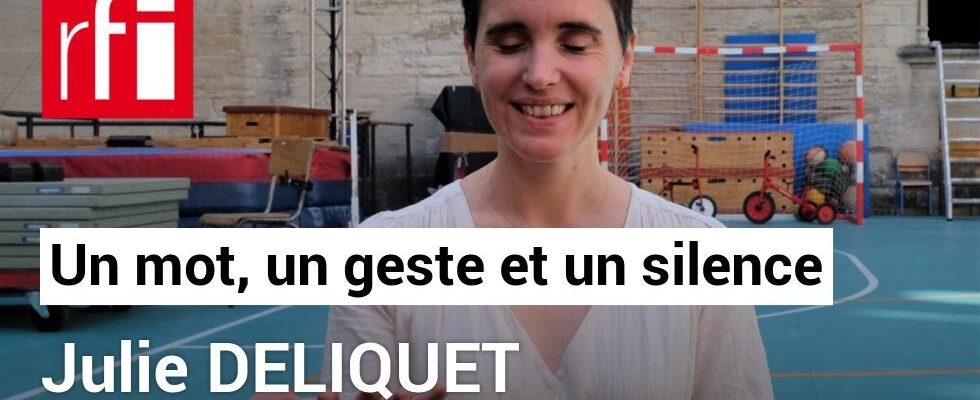With her radical staging, Julie Deliquet caught many people off guard. With “Welfare”, she installs the gloom of a social center in the sacred place of the theatre, the Cour d’honneur of the Palais des Papes, and unceremoniously exposes the spectators to the harsh and banal reality of administrative violence. His social fresco is based on a film but does not project any image, and asks a simple question: what is the place of the marginalized in our society?
6 mins
RFI : At the premiere of your play Welfare in the Cour d’honneur, on July 5, you, standing in front of the front row, facing the two thousand spectators, asked to observe a minute’s silence for Nahel, the young man killed by a policeman. Tonight, was this minute of silence an integral part of your show ?
Julie Deliquet : This minute of silence was an integral part of the moment shared with the public and the start of the Festival d’Avignon. It was a civic moment that would later give way to a show that deals with social issues.
Welfare is an adaptation of the film by Frederick Wiseman. In your play, you kept the place of origin, New York, the era, the 1970s, and also the language, the words of the protagonists of this social center. For you, is it about respecting the words of the homeless, the nationless, the single mothers, the mentally ill, the ex-prisoners, the poorest of the poor once filmed by Wiseman, as much as a text by Racine, Shakespeare or Beckett ?
I want to say : Yes and no. We carried the word of these men and women who speak out. There is not one author who decided on these speeches. So there are as many languages, as many authors as there are men and women who put words to their issues. From there, it is respected, because this word is almost a muscle, an essential, which is expressed. They put words to save their lives. But obviously, there is no sacred relationship to speech. It was also necessary not to give speech an added value to the text that it did not originally have.
It was also necessary to respect this vulnerability of the languages that cohabit with each other. There is the incomprehensibility of the administration, the difficulty in putting words to one’s own condition. We took the time to listen to the rhythms, to observe the choice of words, but we don’t want to oversize this language, because we have to keep it at the level of men and women. You have to measure up to the almost animal moment.
Since 2020, you have been director of the Gérard Philipe Theater in Saint-Denis. For the Festival d’Avignon, you transformed the Cour d’honneur into an emergency social centre. As in Frederick Wiseman’s 1973 documentary, you give space to talk, to listen to these people in the center. Unlike the film, in your staging, the actors take over the space you have created. Sometimes these anti-heroes talk to each other from a distance of five to ten meters. The time and space so specific to the theater, is that the big difference compared to the film ?
Yes, because when I adapt a film work [elle a déjà mise en scène des adaptations de films de Bergman, Fassbinder et Desplechin, NDLR], I do not compete at all with the image of the film. I borrow the dialogues. In the film, we are really on very tight shots, zoomed in on the faces. We enter into the human and we hear the tingling of the collective, we see it. But, ultimately, it always remains interdependent on the individual moment and the collective moment. I wanted to bring these two worlds together to show those who speak, but also those who listen. They listen passively at first, but as time passes together, they also listen much more actively, with a civic conscience. This day is a mini-democracy in action.
This time shared on set is the same time as the time shared with the spectator. It is therefore a question of radicalizing in a way Beckettian » the waiting time. After an hour of performance, a character says : “ it’s been an hour, I still haven’t gone “. The spectator knows that he still hasn’t passed since he’s been watching him wait for an hour. With that time, it’s also the relationship to duration that I wanted to question via live performance. We have a relationship to the present that is hyper shared. We have humans who breathe and who live in front of other humans. I wanted to radicalize this notion.
Frederick Wiseman and you both say that the social system that we see in your works is bad, but it has the merit of existing. So what’s the solution for those left out ?
I don’t know if it’s bad, it’s there. I am a strong defender of the public system, therefore of having a system of rights and public social protection. It is essential. The question of marginality, the question of equality are necessary in our societies. Otherwise, our societies are extremely violent and already today, there are 4 billion social rights that are not claimed each year in France. Social rights are rights, but sometimes it’s difficult to access them. Not to mention digital, which is a place that creates a lot of inequalities when you don’t have access to it. It’s not so much the system that’s dysfunctional, but there aren’t enough resources. So he becomes violent himself. It creates a form of violence that is expressed in the work by the social workers. There, we are emerging from a global pandemic, we see how the social question is at the center of our societies and that it is an essential part of our democracies. What are our societal priorities today ? What are our emergencies ? The room is a place of collective reflection. I don’t pretend to give an answer to that.

► Read also our review of the piece: Avignon Festival: Julie Deliquet stages “Welfare” and “a minute of silence for Nahel”
►Welfaredirected by Julie Deliquet from the documentary by Frederick Wiseman, until July 14 in the Cour d’honneur of the Palais des Papes at the Festival d’Avignon 2023.
► A film capture of the play Welfare will be broadcast for free from July 23 on Culturebox. And the show will be on tour in a dozen cities in France from September 27.
